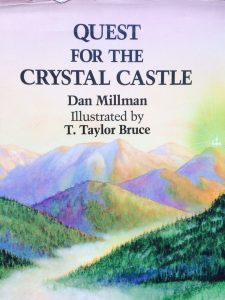 I was born and brought up in Scotland and lived there until I was 13 years old and I am very proud of my Scottish heritage. However, not many people believe I am Scottish because I don’t have a strong Scottish accent. In fact I have a very mixed accent which is predominantly Northern – mainly Yorkshire with just a little hint of Lancashire. And yet when I say the number 4 it sounds like ‘fore’ (very Scottish!) and if I visit Scotland or talk to a person with a Scottish accent for any length of time the Scottish lilt returns.
I was born and brought up in Scotland and lived there until I was 13 years old and I am very proud of my Scottish heritage. However, not many people believe I am Scottish because I don’t have a strong Scottish accent. In fact I have a very mixed accent which is predominantly Northern – mainly Yorkshire with just a little hint of Lancashire. And yet when I say the number 4 it sounds like ‘fore’ (very Scottish!) and if I visit Scotland or talk to a person with a Scottish accent for any length of time the Scottish lilt returns.
When I was a headteacher I would use my Scottish accent to good effect to let the children know that I was not best pleased because my ‘strict Scottish’ only came out when I was cross! Truth be told I can put it on at will although it can vary quite a lot these days, after all it has been 40 years since I lived there!
How on earth could I have been so careless as to lose my accent? Well it happened like this. At 13 years of age we moved to Southampton which at the time seemed like the edge of the world to me. It was my first trip on an aeroplane and very exciting. Mind you at that age I couldn’t understand why our budgie couldn’t fly with us in the plane and had to stay behind in Scotland – that’s a whole other story!).
I started at a new school – this one was an all girl school and it was a bit odd not having any boys in it. It took me a while to settle in at the school not least because the other girls could hardly understand what I was saying because of my (then) strong Scottish accent. I had to slow my speech down and repeat myself regularly to make myself understood. It was very weird because I hardly understood what they were saying either! Needless to say communication was very trying for me.
One day not long after I had started at the school we were in PE when I had a falling out with another girl. I can’t remember what it was all about now (something trivial I am sure). What I do remember was being told that I should go back home to my own country and the girl repeatedly saying ‘Hootsman the noo’ and doing an impression of the highland fling dance. Every time she saw me after that she would mimic my accent and ask me to repeat what I had said because she couldn’t understand me – even if I hadn’t said anything. Before too long about half the class were joining in with the teasing.
I sought refuge in the library as I loved reading and it was a good way to avoid the girls and their teasing. I kept quiet about it to begin with and wish now that I hadn’t. The teasing got worse each day with various insults being thrown my way about how mean I was with money because I was Scottish – in reality we hardly had any money so I was very careful with what I did get. I was left out of a lot of games and was always the last one to be picked in PE. The other girls wouldn’t pass me the ball in netball even if there was no-one marking me. The only thing marking me was my accent and it made me stick out like a sore thumb. I was an easy target for the bullies at the time.
After a few weeks I thought that if I spoke the same as them then maybe they would like me more. I began to listen carefully and mimic the way they spoke so that I didn’t stick out so much. I worked on losing my accent in order to fit in thinking that I would be accepted more. The bullying continued and got worse until one day they circled me in the playground and started to push me from one to the other around the circle. When I finally escaped I fled to the library where the librarian found me crying in a corner. Eventually I explained how much I missed Scotland and my friends there – I didn’t say anything about the girls pushing me around because I didn’t want to be a snitch.
It was getting towards Christmas when I finally told the librarian what was really going on and why I was so unhappy. She was very kind and explained to me that it was bullying and not allowed in the school. She soon got my head of year involved and we had to have several meetings to sort things out. The other girls had never met anyone Scottish before so I was a bit of a novelty to them. Eventually things eased off and I started to make friends and fit in more with the other girls. Sadly I lost most of my Scottish accent in the process – although now I can mimic lots of different accents easily!
Here are 10 signs to watch out for that may mean your child is being bullied.
- She/he is quieter than usual or becomes louder than usual.
- She/he becomes secretive about what they are doing.
- She/he stays in the house more than they used to.
- She/he is subdued when they come home from school.
- She/he doesn’t want to go to school at all and won’t tell you why.
- Her/his appetite changes – eating more or eating less.
- She/he starts wetting the bed again.
- She/he is sleeping badly.
- She/he has unexplained bruises.
- She/he loses possessions or starts to ask for more money.
I scored 7 out of 10 of these ‘symptoms’ of bullying. I was very lucky that things were sorted out quickly for me once I spoke up. All too often children and young people are scared to speak up and don’t want to tell an adult for fear of getting into trouble themselves or making things worse. As parent/carers and teachers we all need to watch out for signs our children may be being bullied and take action to help them.
- Talk to your child in a calm, curious way.
- Show your child that you are there to support them.
- Rehearse responses with your child so that they have choices about how to react if it happens again.
- If the bullying is taking place at school contact the school to arrange a meeting.
- Watch out for online bullying on Facebook, Snapchat, Instagram etc.
- Explain to your child that bullies were often bullied themselves as children.
- Talk to the other child’s parents as they may not be aware it is happening.
If you are concerned that your child is being bullied and would like to help them then please get in touch for more information about how some sessions with NLP4Kids West Yorkshire can help boost their confidence.
Email me at soo@NLP4Kids.org or call today on 07851447612
Soo Matthews
www.westyorkshirechildtherapy.nlp4kids.org


